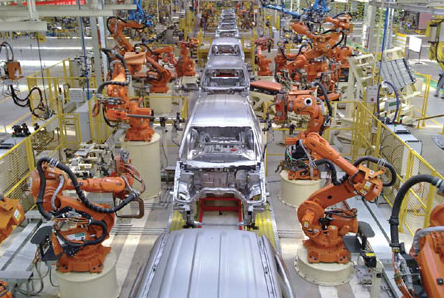AI Engineer vs ML Engineer: Differences and Similarities

This article will explore the similarities and differences between Machine Learning Engineers and AI Engineers. The lines between AI and Machine Learning (ML) Engineers can often become fuzzy since their skills and goals overlap. Yet, some crucial differences help us understand what sets each role apart, especially in the exciting fields of Artificial Intelligence (AI) and Machine Learning.

Machine Learning and Artificial Intelligence
AI is a very general concept in which machines mimic our intelligence. It encompasses tasks like understanding language, recognizing images, and playing strategic games. AI includes rule-based systems, expert systems, and more. We will now review the main Machine Learning frameworks and Deep Learning.
Machine Learning - A Technical Introduction
Machine Learning (ML) is a branch of AI focused on algorithms that enable systems to learn from data. Rather than relying on explicit programming to complete tasks, Machine Learning models enhance their performance as they encounter more data, adjusting and learning to make predictions or decisions. ML utilizes these techniques to develop intelligent systems.
Engineers who deploy Machine Learning models deal in data processing. Machine Learning engineers excel in data because they are skilled at preparing and transforming large datasets into usable formats, ensuring the data is clean, relevant, and properly structured for model training.
They apply techniques such as data normalization, feature engineering, and dimensionality reduction to enhance model accuracy and efficiency, which is crucial for building reliable and scalable ML systems.
Supervised Learning involves training a model on a labeled dataset. The algorithm learns to predict outcomes based on input data. For instance, the model minimizes an error function.
MSE = (1/n) * Σ(y_i - f(x_i))^2
where n is the number of data points, y_i is the actual value for data point i, f(x_i) is the predicted value for data point i
This helps adjust the model's weights to fit the data for regression tasks better. However, for classification tasks, cross-entropy might be used instead to measure prediction accuracy.
Unsupervised Learning involves models identifying patterns in data without explicit guidance. Methods include:
k-means clustering, which minimizes the function: J = Σ||x_i - mu_j||^2, where x_i represents each data point, mu_j are the centroids of the clusters, "||...||" denotes the Euclidean distance.
Principal Component Analysis (PCA) reduces data dimensions while retaining as much variance as possible, simplifying the dataset for analysis.
Reinforcement Learning operates on a system of trial and error where models learn to make decisions by receiving rewards or penalties. The goal is to maximize the cumulative reward, calculated by the Bellman equation:
R = r + γ * max(R')
where R is the expected future return, r is the immediate reward received for the current action, gamma (γ) is the discount factor that reduces the value of future rewards (0 ≤ γ < 1), and max(R') represents the best future reward achievable from the next state.

Deep Learning
Deep learning, a subset of ML, uses layered neural networks for tasks like image recognition. Each neuron layer transforms data into more abstract representations.
Feature engineering enhances the data fed into these algorithms, while model evaluation gauges performance using accuracy, precision, recall, and F1 score metrics.
Hyperparameter tuning optimizes these algorithms beforehand for better results. Once deployed, models require monitoring and retraining to adapt to new data patterns.

Machine Learning (ML) Engineers: The Specialists in Data
ML Engineers are the architects of ML models. The Machine Learning Engineers' activities involve diving deep into data analysis, preprocessing, and feature engineering to ensure that machine learning algorithms operate optimally.
They excel in creating Machine Learning solutions that can predict outcomes, classify data, or cluster information based on historical data.
Why is data science so crucial for Machine Learning? Data science is at the heart of Machine Learning, providing the foundation through data analysis. This process involves cleaning, transforming, and understanding data to feed into AI and Machine Learning models.
In essence, Artificial Intelligence and ML rely heavily on insights derived from data analytics to make informed decisions. Artificial Intelligence systems are only as good as the data they're trained on, so data analytics is critical in enabling machines to learn and predict.
Lastly, AI tools are developed and optimized using these data-centric techniques, ensuring that ML engineers are indeed data specialists at their core.
The ML Engineer's expertise lies in:
- Data Science: Understanding and manipulating vast datasets to feed into ML models.
- ML Algorithms: Developing and refining algorithms, from simple linear regression to complex networks.
- Model Development includes training and evaluation to ensure reliability and accuracy. Deploying ML Models involves integrating them into existing systems or real-world applications to automate tasks and enhance data-driven applications.

AI Engineers: Bridging AI and ML Engineers
AI Engineers take a comprehensive approach to AI, extending beyond ML to incorporate elements like natural language processing, computer vision, and deep learning.
They aim to develop intelligent systems capable of mimicking human intelligence. Their work involves using AI models to tackle complex problems that require understanding human language or visual data. They design systems that can perform tasks traditionally requiring human intervention, such as data or predictive analytics.
AI Engineers leverage various AI frameworks and algorithms to construct solutions that integrate smoothly with existing software engineering practices. They aim to ensure these AI initiatives are innovative, practical, and deployable across various industries.
AI Engineer Vs. ML Engineer: Overlapping Skills and Roles
AI and ML Engineers' work involves a continuous interplay of technical skills, creative thinking, and a deep understanding of the data-driven world. This ensures that they are well-prepared to tackle the challenges of tomorrow's innovations.

AI and ML Engineers have a robust foundation in computer science, data handling, and software development. Their roles demand strong programming skills and a profound understanding of both traditional methods and contemporary ML frameworks. Proficiency in programming languages such as Python is essential for both AI engineers and ML engineers.
This combination equips them to navigate and thrive in complex environments where innovation and analytical thinking are crucial.
In the data field, both AI and ML Engineers excel at data collection, processing, and analytics. They are skilled at gathering vast amounts of data from various sources and transforming it into meaningful insights that inform decision-making processes. This step is crucial, as the quality of the data collected directly influences the effectiveness of the models they develop.
Once the data is secured and processed, the focus shifts to model training and deployment. AI and ML Engineers collaborate closely to develop and deploy models designed for predictive analytics and automation tasks. This part of their work involves a continual improvement cycle, where models are tested, refined, and ultimately put into production to deliver real-world solutions.
Moreover, engineering skills are often at the heart of their responsibilities.

Whether it entails feature engineering for ML or model development for AI, both disciplines require a blend of creativity and rigorous engineering principles. This creative problem-solving approach enables them to construct sophisticated systems that function well and adapt and evolve in an ever-changing technological landscape.
The Key Differences
Machine Learning Engineers focus on ML models and performance metrics. Machine Learning engineers focus primarily on machine learning algorithms and statistical methods for data analysis. They fine-tune recommendation algorithms for e-commerce, improving accuracy, reducing latency, and adapting to new data patterns. Their work involves rigorous A/B testing to optimize precision, recall, and F1 score performance metrics.
In contrast, AI Engineers integrate AI technologies into broader applications. They may develop autonomous vehicle systems using ML for path prediction and object detection, natural language processing for voice commands, computer vision for real-time analysis, and decision-making algorithms. The scope of AI Engineers ensures these components work seamlessly, considering safety protocols and user interaction.
AI engineers typically have a broader skill set than Machine Learning engineers, covering various AI algorithms.
Skills for ML and AI Engineers - Differences
ML Engineers delve deep into the nuances of ML solutions, focusing on algorithms for tasks like regression, classification, and neural networks. They're experts in data preprocessing, feature engineering, model selection, and fine-tuning models for performance.
Conversely, AI engineers aim to make systems more intelligent by integrating various AI methodologies. Their work combines natural language processing, computer vision, and deep learning into broader systems. They focus on designing and architecting solutions where different AI components work together to address complex problems, often requiring knowledge beyond traditional ML, like knowledge representation and decision-making under uncertainty.
Both roles demand strong programming skills, but AI Engineers use various AI frameworks and tools to achieve comprehensive system intelligence.

Industry Application for ML and AI Engineers
ML Engineers might be more involved in sectors where predictive models directly correlate with business outcomes.
For instance, they could develop credit scoring models or fraud detection systems in finance.
In healthcare, they might predict patient outcomes or optimize treatment plans.
In e-commerce, they could improve recommendation engines or dynamic pricing strategies, using data to make precise predictions that drive decisions or enhance business operations.
Conversely, AI engineers might find roles where machine intelligence helps user interaction or operational efficiency.
They could create more responsive AI for NPCs or adaptive game difficulty in gaming.
They might implement chatbots or voice assistants that understand and respond to natural language queries for customer service.
AI could be used in manufacturing for predictive maintenance or optimizing supply chain logistics through intelligent systems, emphasizing building applications that interact with users or manage complex processes to enhance functionality or user experience.
Conclusion - ML Engineers and AI Engineers
As we have seen, the distinction between AI Engineers and ML Engineers is not always clear; it sometimes blurs.
Understanding these roles helps one appreciate how ML and Artificial Intelligence are pivotal in crafting solutions that can analyze, predict, and even learn from data in ways that were once the exclusive domain of human intelligence.
The roles of ML and AI Engineers will continue to evolve, but the core of their mission—harnessing data through sophisticated algorithms to solve real-world problems—remains constant.
FAQ
Which one is better, an ML engineer or an AI engineer?
It depends on your interest. Machine Learning is for those focused on predictive AI models and data-driven decision-making, whereas AI Engineers care for broader intelligence systems, integrating various AI technologies. You may prefer ML if you love to analyze data and enjoy the depth of algorithm development or AI if you're interested in holistic, intelligent systems.
Do I need to learn data science before ML and AI?
Data science provides foundational skills like data analysis, statistical methods, and data manipulation, which are essential for Machine Learning and AI Engineers. Understanding these concepts will make you more effective in your role.
What is the average salary for AI vs ML engineers?
AI Engineers earn around $106k in the US, while Machine Learning Engineers' salaries can range from $97k to $181k, depending on experience, location, and industry. These figures can vary and should be taken with a pinch of salt based on current data and market conditions (early 2025).
Do AI engineers need to know ML?
In most cases, yes, because Machine Learning is a subset of AI and is crucial for many AI applications. AI Engineers work with ML to design and implement systems that learn from data, although their scope might extend beyond ML techniques.
What is the minimum study required for AI engineers?
AI engineers need a bachelor's or master's degree in computer science, mathematics, statistics, data science, or related fields.
Can AI become human?
No more than your refrigerator. AI can mimic human behavior or intelligence but it lacks human emotions, consciousness, and biological processes. It's a tool, not a sentient being.



